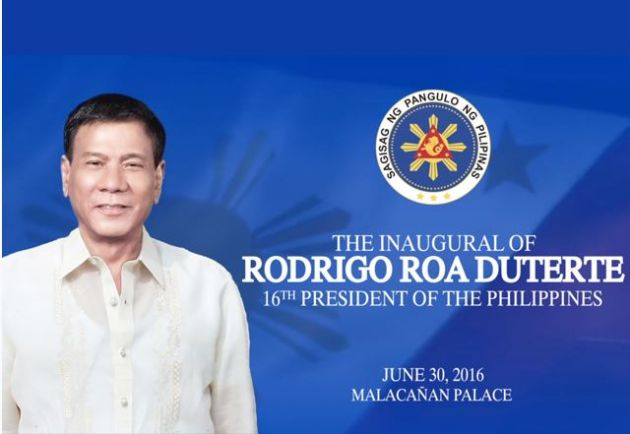Duterte's plan to scrap Philippine rights body angers some Catholic bishops

At least two Catholic bishops have expressed outrage over Philippine President Rodrigo Duterte's plan to abolish the country's Commission on Human Rights and the controversial leader has also faced accusations of ethnic cleansing at hearing in the U.S. capital.
Bishop Arturo Bastes of Sorsogon was the first to chastise the president saying he was "out of his mind," Vatican Radio reported July 28.
The bishop said Duterte's threats to close down the independent body only shows he has "no knowledge" about how governments should operate in a democratic society.
Duterte, at a press conference after his state of the nation address on July 24, said he wanted to shut down the commission, which has been critical of his sexist jokes and the killings associated with his brutal war on drugs.
The president said that rather than solely targeting government men, CHR should speak out against killings perpetrated by suspected drug addicts and the atrocities committed by terrorists locked in an urban combat with the military in Marawi City.
"My God, Duterte is getting out of his mind!" Bishop Bastes exclaimed, said Vatican Radio adding, "his desire to abolish CHR is a sign that he has the dangerous tendency to be a dictator. Heavens forbid!"
The CHR is an independent office created under the 1987 Constitution of the Philippines tasked with investigating all forms of human rights violations involving civil and political rights in the country.
Retired Bishop Teodoro Bacani of Novaliches said the president cannot just abolish the CHR because it was "created and protected" by the Philippine Constitution.
The 77-year-old bishop is one of the authors of the Constitution, and he called on Filipinos to pray for Duterte to regain his "good sense."
Bacani said that the commission can only be abolished through a constitutional amendment.
At the July 24 press conference, Duterte said he would not allow members of the military to be investigated for possible human rights violations, arguing that the human right's commission should go through him before getting to his men.
'REIN OF TERROR'
In a Jan. 30 pastoral letter, the Philippine bishops had issued a strong statement against the increase in extra-judicial killings, referring to it as a "reign of terror."
Duterte had during his presidential campaign promised to rid the country of illegal drugs in three to six months and repeatedly threatened traffickers with death.
On June 30 the president marked his first year in office, declaring he would fight the drugs menace until his last day in office.
More than 5,200 suspects have died so far, including more than 3,000 in reported gunbattles with police and more than 2,000 others in drug-related attacks by motorcycle-riding masked gunmen and other assaults, police said.
Human rights groups have reported a higher toll and called for an independent investigation into Duterte's possible role in the violence.
Earlier in July Duterte and government officials were accused of being guilty of "social cleansing" under the guise of a war on drugs, advocates testified in Washington DC's Capitol Hill, Catholic News Agency reported.
"Duterte and other high officials of the land, having had to find a particular section of Philippine society worthy of elimination, have effectively put in place a de facto social cleansing policy whereby police and vigilantes are not only encouraged, but rewarded and forced to commit extrajudicial killings," witness Ellecer Carlos told members of the Tom Lantos Human Rights Commission on Thursday.
The hearing on "The Human Rights Consequences of the War on Drugs in the Philippines" featured Carlos and two other witnesses from Amnesty International and Human Rights Watch.
They testified on reports of extralegal killings in the Philippines as part of President Duterte's "Operation Plan Tokhang," the war on drugs.
The witnesses alleged that high-ranking officials in the Philippine government are complicit in human rights abuses where police officers and vigilantes, who may be working for and paid by the police, track down and kill those involved in the drug trade, with evidence present of other abuses like torture.